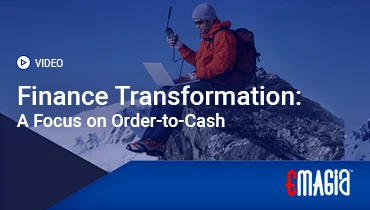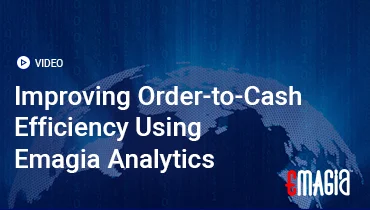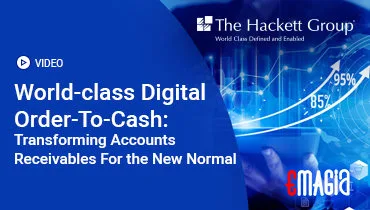In the vast landscape of American personal finance, understanding the nuances of debt can be challenging. For many, encountering an overdue account often leads to a pressing question: “what is a collection agency?” This query frequently arises when the original creditor, perhaps a bank or a utility provider, transitions from internal collection efforts to engaging a third-party firm. This specialized entity is known as a debt collection agency, often abbreviated as DCA.
The DCA meaning extends beyond just recovering funds. These agencies operate within a specific legal framework, primarily the federal Fair Debt Collection Practices Act (FDCPA), alongside a patchwork of state-specific laws. For consumers across the USA, from California to New York, understanding “how do debt collection agencies work” and “what can a debt collection agency do” is vital for protecting financial well-being and consumer rights. This detailed guide will illuminate the role of these firms, explain what happens when debt goes to collections, and empower you with knowledge about your protections and strategies for resolution.
Defining a Debt Collection Agency (DCA) in the USA
At its core, a debt collection agency is a business that focuses on recovering money owed on overdue consumer or commercial accounts. When a creditor’s in-house efforts to collect an unpaid balance are unsuccessful, they often turn to these agencies. These firms act as specialized intermediaries, either collecting on behalf of the original creditor for a fee or after purchasing the debt outright for a lower sum.
The primary function of these collections agencies is to facilitate the recovery of outstanding payments. They possess particular expertise, resources, and legal knowledge specifically aimed at encouraging debtors to fulfill their financial obligations. For businesses, enlisting such credit collection services allows them to offload the time-consuming and often complex process of pursuing delinquent accounts, enabling them to concentrate on core operations.
How a Collections Agency Operates Across States
The operational process of a collections agency typically starts when an original creditor “places” a debt with them (meaning the agency collects on commission) or “sells” the debt to them (meaning the agency owns the debt and keeps all recovered funds). The latter is a common practice, particularly for older or harder-to-collect accounts.
Upon acquiring or being assigned a debt, the agency will initiate contact with the debtor. Common methods include sending initial letters and making phone calls. Their main objective is to negotiate payment, which could involve setting up a manageable payment plan, demanding the full outstanding amount, or offering a reduced settlement sum. Their strategies must comply with both federal and relevant state regulations, which often dictate communication practices and permissible actions.
Navigating Different Types of Collection Agencies in America
The landscape of debt recovery in the U.S. includes various types of firms, each with distinct operational models. Knowing these distinctions can provide insight into “how do collection agencies work” from different angles:
- First-Party Agencies: These are not external agencies but rather internal departments within the original creditor’s company. They manage early-stage delinquent accounts before external debt collection services are considered.
- Third-Party Agencies: This is the most common type of external collections agency. They are hired by creditors to collect on their behalf, typically operating on a contingency fee basis, earning a percentage of the debt recovered. They don’t own the debt.
- Debt Buyers: These entities purchase delinquent debts from original creditors for a fraction of their face value. Once bought, the debt becomes their property, and they attempt to collect the full amount, keeping the profit. This is a significant aspect of the debt collection services industry.
- Commercial Collections: These agencies specialize in business-to-business (B2B) debt, dealing with unpaid invoices between companies. They often handle larger amounts and more complex accounts.
- Consumer Collections: These firms focus on individual consumer debts, such as credit card debt, medical bills, student loans, or personal loans. This segment is heavily regulated by consumer protection laws.
The specific type of collections company involved can significantly influence the collection approach, your consumer rights, and the applicable regulatory oversight.
What Happens When Debt Goes to a Collection Agency in the USA?
When an account transitions to a debt collection agency, it marks a significant escalation in the collection process, often with notable implications for the debtor’s financial standing and stress levels. Understanding “what happens when debt goes to collection agency” is critical for preparing your response.
Initial Notification and Increased Contact
Upon acquiring a debt, federal law (FDCPA) generally requires the agency to send a written “validation notice” within five days of their first communication with you. This letter must include details about the debt, the original creditor, and your right to dispute the debt. Following this, you can expect increased communication attempts via phone calls, letters, and potentially emails, as the agency works to recover the outstanding balance.
Impact on Your US Credit Score
One of the most profound consequences when debt goes to a collection agency is its adverse effect on your credit report and score. Once reported to major credit bureaus (Experian, Equifax, TransUnion), a collection account can significantly lower your credit rating for up to seven years from the date of the original delinquency, even if the debt is eventually paid. This can hinder your ability to secure new loans, credit cards, or even housing in various U.S. states.
Potential for Legal Action
While often a last resort, a collections agency can initiate legal action to recover the debt. If negotiations fail and the debt is substantial, they might file a lawsuit to obtain a court judgment against you. A judgment allows them to pursue more aggressive collection methods, such as wage garnishment (where permitted by state law), bank account levies, or property liens. This illustrates the full scope of “what can a debt collection agency do” when other methods are exhausted.
Your Rights & Protections: What Can Collections Do (and Not Do) in the USA?
In the United States, consumer protection laws are in place to regulate the conduct of debt collection agencies and safeguard debtors from abusive practices. The cornerstone of these protections is the federal Fair Debt Collection Practices Act (FDCPA). Understanding “what can collections do” under these laws is crucial, regardless of whether you reside in Florida, Texas, or Washington.
Fair Debt Collection Practices Act (FDCPA) Protections
The FDCPA provides specific guidelines that most third-party debt collection services must follow:
- Permitted Contact Times: They generally cannot contact you before 8:00 AM or after 9:00 PM local time, unless you agree otherwise.
- Workplace Contact: If you inform them you cannot receive calls at work, they must stop calling you there.
- Prohibition of Harassment: They cannot use threats of violence, obscene language, or repeatedly call with the intent to annoy or harass. This includes limits on call frequency (e.g., typically no more than seven calls within a seven-day period for a specific debt).
- False Statements & Misrepresentation: They cannot lie about the amount you owe, falsely claim to be law enforcement or attorneys if they are not, or threaten legal action they do not intend to take.
- Debt Validation Rights: You have the right to request validation of the debt in writing within 30 days of initial contact. If you do, they must cease collection activities until they provide proof of the debt.
- Cease and Desist Letters: You can send a written “cease and desist” letter to stop all future communication from the agency. Be aware, however, that this doesn’t eliminate the debt or prevent them from suing you.
Understanding “what does a debt collection agency do” in compliance with the FDCPA empowers you to respond effectively and protect your rights. If you believe your rights have been violated, you can file a complaint with the Consumer Financial Protection Bureau (CFPB) or your state’s Attorney General.
State-Specific Debt Collection Laws (Beyond FDCPA)
While the FDCPA provides a federal baseline, many U.S. states have enacted their own fair debt collection laws that offer additional protections. These state laws can sometimes be broader, covering original creditors (who are generally exempt from the FDCPA) or imposing stricter regulations on communication and practices. For instance, states like California (with the Rosenthal Fair Debt Collection Practices Act) or New York (with the Consumer Credit Fairness Act) have robust statutes.
Key variations by state can include:
- Statute of Limitations: This is the legal time limit during which a creditor or collections company can sue you to collect a debt. These vary significantly by state and debt type (e.g., written contract, oral contract, promissory note). For example, a credit card debt might have a 3-year statute of limitations in North Carolina but 6 years in Massachusetts. Paying on a “time-barred” debt in some states can even “re-start the clock,” making it collectible again.
- Licensing Requirements: Some states, like Washington or Illinois, require collections agencies to be licensed and bonded to operate within their borders, providing an additional layer of oversight.
- Exemptions from Garnishment: State laws often dictate what income or assets are exempt from wage garnishment or bank levies, offering specific protections for residents.
Because these laws vary so widely, it’s prudent to research the specific regulations in your state or consult a local consumer law attorney when dealing with a collections agency. This knowledge helps in understanding “what can collections do” uniquely in your region.
How to Effectively Deal with a Debt Collection Agency in the USA
Interacting with a collections agency can feel overwhelming, but a systematic approach can help you manage the situation effectively while safeguarding your rights. Knowing “how do debt collectors work” and how to respond is key.
- Verify the Debt Promptly: Your first step should always be to verify that the debt is legitimate and that you owe it. Send a written request for “debt validation” via certified mail (with return receipt requested) within 30 days of the agency’s initial contact. This forces them to provide proof.
- Know and Assert Your Rights: Familiarize yourself with the FDCPA and your state’s debt collection laws. If an agency violates these laws (e.g., calling too early/late, harassing you), document it and consider filing a complaint. You can also send a written “cease and desist” letter to stop most communication.
- Communicate Strategically and in Writing: While phone calls can be convenient, written communication (preferably certified mail) creates a clear record of all interactions. This protects you if disputes arise or if legal action is considered.
- Negotiate a Settlement: If the debt is valid and you cannot pay the full amount, agencies, especially debt buyers, may be willing to negotiate a settlement for a lower sum (e.g., 50-70% of the original amount). Always get any settlement agreement in writing before making a payment.
- Avoid Resetting the Statute of Limitations: Be extremely cautious about making even small payments on older debts, or even acknowledging them in writing, as this can “re-start the clock” on the statute of limitations in many states, making a previously time-barred debt legally collectible again.
- Seek Professional Guidance: If the situation is complex, or you feel overwhelmed by a collections company, consider reaching out to a non-profit credit counseling agency, a consumer law attorney, or a legal aid service in your state for personalized advice.
By taking these steps, you can navigate the process of “how collection agencies work” while protecting your credit and financial standing. It’s about proactive engagement rather than avoidance.
For Businesses: Optimizing A/R to Reduce Reliance on External Debt Collection Agencies
For businesses across the U.S., engaging external credit collection services or a collections company is a decision often made after exhausting internal accounts receivable efforts. While these firms can be invaluable for recovering difficult debts, the ideal scenario is to minimize the need for their involvement by optimizing internal processes. This not only saves collection fees but also preserves customer relationships and brand reputation.
Strategic Approaches to Minimize Delinquencies
Before considering an external debt collection agency, businesses should implement robust internal strategies for accounts receivable (A/R) management:
- Streamlined Invoicing & Payment Options: Ensure invoices are accurate, clear, and delivered promptly. Offer diverse and convenient payment methods, including online portals, ACH transfers, and even installment plans for larger sums.
- Proactive Communication & Reminders: Implement automated, yet personalized, reminders for upcoming and past-due payments. Gentle nudges before a payment is due can significantly reduce delinquencies.
- Strong Customer Relationships: Maintain open lines of communication with customers. Often, payment issues stem from misunderstandings or temporary financial difficulties that can be resolved with empathetic engagement.
- Data-Driven Collections: Utilize analytics to identify high-risk accounts early. This allows for targeted intervention and a tailored approach to collections, rather than a one-size-fits-all method.
Emagia: Transforming Accounts Receivable to Minimize Debt Collection Needs
The core objective for any forward-thinking business is to prevent accounts from ever reaching the stage where a third-party debt collection agency becomes necessary. Emagia’s cutting-edge, AI-powered autonomous finance platform is specifically designed to achieve this by revolutionizing the entire order-to-cash process, significantly reducing delinquent accounts and the subsequent need for external collection efforts.
Here’s how Emagia empowers businesses to manage their receivables proactively, strengthen cash flow, and diminish reliance on external debt collection services:
- Hyper-Automated Cash Application: Emagia’s AI automates the matching of incoming payments to invoices with unparalleled accuracy and speed. This eliminates payment discrepancies and ensures funds are applied correctly and promptly, reducing the “aging” of accounts due to administrative errors.
- Predictive Collections with AI: The platform leverages advanced AI to predict which invoices are at risk of becoming delinquent and to forecast customer payment behaviors. This allows businesses to prioritize and personalize their collection strategies, focusing resources where they are most effective and engaging customers proactively before debt becomes deeply overdue and requires a collections company.
- Intuitive Customer Payment Portals: Emagia offers modern, self-service customer payment portals that provide complete transparency over accounts, easy access to invoices, and a variety of convenient payment options. This empowers customers to manage their payments effortlessly, fostering timely payments and reducing the likelihood of accounts needing a debt collection agency.
- Streamlined Dispute Resolution: AI-driven insights identify potential billing disputes early in the lifecycle. By automating communication and workflows for dispute resolution, businesses can address issues swiftly, preventing them from escalating into overdue accounts that might otherwise be handed off to a DCA.
- Comprehensive Real-time Analytics: Emagia provides dynamic dashboards and in-depth analytics that offer real-time visibility into the health of accounts receivable, aging trends, and the effectiveness of collection strategies. This data-driven approach enables businesses to proactively identify and mitigate risks, drastically reducing the volume of accounts that would traditionally require intervention from a DCA.
By fostering operational efficiency, enhancing customer experience, and providing actionable intelligence, Emagia helps businesses maintain robust accounts receivable health, minimize financial losses, and preserve valuable customer relationships, moving beyond the reactive approach of external collections.
Frequently Asked Questions (FAQs) About Debt Collection Agencies in the USA
What is a collections agency in the USA?
A collections agency is a company specializing in recovering overdue or unpaid debts for creditors, or after purchasing the debt. They operate under federal laws like the FDCPA and various state-specific regulations to recover consumer or commercial debts.
What can a collection agency do to collect debt?
They can contact you by phone, mail, or email, negotiate payment plans or settlements, and report the debt to credit bureaus, impacting your credit score. In certain circumstances, after following legal procedures, they can sue you to obtain a judgment, potentially leading to wage garnishment or bank levies, depending on state laws.
How do debt collection agencies work?
They either receive debts on a contingency basis (collecting for the original creditor for a percentage) or purchase debts outright at a discount. They then use communication strategies to recover payment, adhering to legal guidelines for fair practices.
What happens when debt goes to collection agency?
You’ll receive formal notices, your credit report may show the collection account, and you’ll experience increased communication. The agency may pursue legal action if other collection attempts are unsuccessful, potentially leading to a court judgment.
What is the Fair Debt Collection Practices Act (FDCPA)?
The FDCPA is a federal law that governs the practices of third-party debt collectors in the U.S. It prohibits abusive, unfair, or deceptive practices, sets rules for communication, and grants consumers rights like debt validation and the ability to stop contact.
How long can a debt collection agency pursue a debt in the USA?
A debt collection agency can pursue a debt indefinitely, but their ability to sue you is limited by the “statute of limitations,” which varies by state and debt type (typically 3-10 years). Once “time-barred,” they generally cannot sue, but they might still contact you to request payment.
Can a debt collection agency call me at work in states like Texas or California?
Under the FDCPA, a debt collection agency cannot contact you at work if they know or have reason to know your employer prohibits such calls. You should inform them verbally and in writing if work calls are inconvenient or prohibited.
What is considered harassment by a debt collector in states like New York or Florida?
Under the FDCPA, harassment includes using threats of violence, obscene language, repeatedly calling with intent to annoy (e.g., more than seven times in seven days per debt), or calling at unusual times (before 8 AM or after 9 PM local time).
What are “time-barred” debts in the context of US debt collection?
A “time-barred” debt is one where the statute of limitations has expired, meaning the debt collector can no longer legally sue you in court to collect it. However, the debt itself is not erased, and collectors may still contact you to request payment (though this varies by state).
Should I pay a collection agency if the debt is very old or “time-barred”?
If a debt is time-barred, you cannot be sued for it, but paying even a small amount or acknowledging the debt in writing can “reset the clock” on the statute of limitations in many states, making you vulnerable to a lawsuit again. It’s crucial to understand your state’s specific laws or consult a consumer attorney before making any payment on old debts.
Conclusion: Navigating the Complexities of Debt Collections in the United States
Understanding the full DCA meaning and the operational landscape of debt collection agency practices in the United States is more than just academic knowledge; it’s a vital skill for protecting your financial future. These entities play a significant role in the lifecycle of debt, but their powers are strictly regulated by federal and state laws.
By equipping yourself with knowledge about what is a collections agency, how do debt collection agencies work, and critically, your specific rights under the FDCPA and various state statutes, you can navigate potential interactions with confidence. Whether verifying debts, asserting your right to cease communication, or understanding the statute of limitations in your particular state, being proactive and informed is your strongest defense. For businesses, embracing advanced A/R automation offers a powerful path to minimize the very need for these external services, fostering healthier cash flow and stronger customer relationships from the outset.
DCA Related Resources
Datasheet



